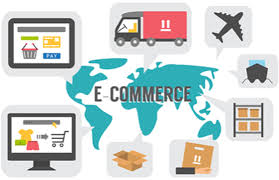Electronic invoicing GS1 EDI
Electronic Communications or Electronic Commerce (e-Com) is a business-to-business scheme referring to the electronic exchange of messages to carry out logistics operations.
Emails
GS1 standards that enable the efficient and accurate electronic exchange of business data between trading partners, as they can significantly improve supply chain efficiency by reducing waiting time for merchandise clearance, merchandise receipt, payment is reflected in cost reduction.
They comprise a set of business messages, contained in documents, the most frequent are purchase order, advance shipping notice, receipt confirmation and electronic invoice, through already defined electronic transactions: GS1 EANCOM, XML and ANSI X-12

Because it is important?
EDI is the most widely used global standard for electronic data interchange today, the implementation of B2B electronic messages can significantly improve the efficiency of the supply chain, optimize waiting time for merchandise clearance, merchandise receipt, billing and reduce costs.
As companies evolve trying to find new and better methods to carry out their business processes, they perceive that "Just in time" information plays a transcendental and strategic role in order to compete and even survive in the market.
EDI standards ensure that information transmitted between trading partners is accurate, secure, and reliable.
Most used electronic messages
Purchase order
It is the electronic transaction intended for a supplier to request an order and that is focused on a standard, as well as a communication platform.
Advance Shipping Notice
Message used to indicate in detail the shipment of merchandise that is being delivered. In addition, this type of message is part of the first steps for customs clearance, in the case of international shipments. The products contained in each uniquely identified logistics unit are described in the Advance Shipping Notice message. When the merchandise is received, the physical shipment and the electronic message can be collated.
Merchandise Receipt Notice
Message or transaction that allows a buyer or receiver of the merchandise to provide the supplier or its corresponding agent, information that confirms the receipt of the same, the point of shipment and reception, possible discrepancies between the items received, as well as instructions for the corrections that must be carried out in the invoice or credit notes to be issued, which are based on the bill of lading or shipment notification.
Liquidation Notice
This message indicates that a payment will be made to a supplier, by a buyer, in addition to providing detailed accounting on a payment or other form of financial operation, on a certain date, for the provision of goods or the provision of services, as detailed in the notice itself. This message may involve one or more business transactions (and other related financial transactions), such as invoices, credit notes, credit notes, etc.
Validation response
Message from a business partner, to inform that you received the original message and report possible errors generated during the process.
Depending on the commercial cycle, it can be used after a shipping advice or an electronic invoice; it should not be used as an acknowledgment of receipt of the exchange.
Benefits of having EDI
- Reduction of administration and processing costs
- Greater precision in information exchange
- Reduced lead time and inventory
- Reduced use of resources in the operational phase
- Increases customer satisfaction
- Enables new business processes
Requirements
The prerequisite for the use of GS1 eCom standards is to have the company prefix, since it allows the generation of the GTIN (Global Trade Item Number) necessary for the identification of products, and the GLN (Global Location Number) that allows identify physical locations as well as business partners.
All information about products and partners involved in Order to Cash transactions will be referenced by their respective GTIN and GLN identifiers in the GS1 eCom message.